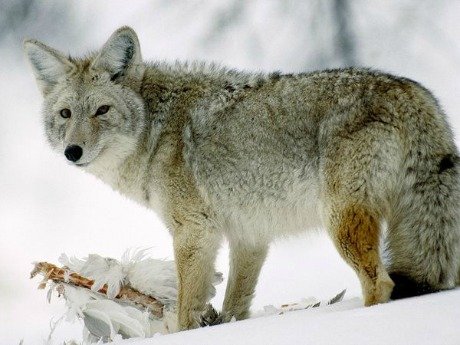
Photo: National Geographic Canada
By Gagandeep Ghuman
Published: Feb 26, 2014
The cougars may have receded into the wild, but pets in Squamish face new foes: Coyotes and bobcats.
Last year started with a coyote killing a small dog from a front yard in the Garibaldi Highlands. A coyote also killed a cat in the Garibaldi Highlands.
Bobcat also found easy prey in dogs, attacking them when they were off-leash, mostly on the Coho Park or the Four Lakes trail.
People called the conservation office 13 times last year to report coyotes, but not all calls were to report attacks. A similar number of calls were made to the conservation office’s 24-hours hotline about bobcats.
These incident were recorded as part of the WildSafeBC year-end report, presented to the council on Tuesday, Feb. 25, by program coordinator Meg Toom.
Toom said there were also a few reports on social media of dogs being attacked by bob cats, but it’s difficult to provide an accurate picture as the calls were not made to official channels, Toom said.
But the numbers of calls for coyotes and bob cats saw a marked increase this year.
From 2006 to 2012, there were 13 calls made regarding bobcats.
In the last year alone there were 13 calls.
Explaining the higher number of calls, Toom said weather affects food production, which in turn affects movement of wildlife.
“If wildlife finds food, water and shelter within our neighbourhoods, we can expect to see an increase in human and pet-wildlife conflict,” she said.
Toom also added that coyotes are highly adaptable animals and hunting smaller domestic pets is easier for young and less experiences.
Another reason for the high number of sightings simply is more people calling the line.
Last year also saw a decrease in both bear and cougar sightings, also a less lethal year for bears and cougars.
In 2013, only one bear was destroyed. In 2012, by comparison, there were 12 bears that were destroyed, with nine being killed in vehicle collisions.
In 2013, an abundant berry crop and a 50-year record high in pink salmon kept bears away from neighbourhoods.
Toom said pets being attacked by coyotes in various neighbourhoods is an ongoing concern. She encouraged citizens to report wildlife by calling 1-877-952-7277 (RAPP) or on cell #7277.


Dave says
This problem can be reduced by ensuring that dogs are kept on leash when outside the house/fenced yard. The practice of letting the dog out in the early morning or dusk to do its thing, while the owner goes back to bed or is watching a favourite TV show, is all too common. Cats?…well this is a little different, by tradition. But in both cases owners should be prepared to take the risk rather than indiscriminately phoning wildlife with the knowledge that all they really can do is tag, destroy the offender or possibly expensively relocate. Relocation really should reserved when the offender is a danger to humans. And I like dogs and cats and have been an owner of both over the years. Dog owners: Just think, you might even be caught by a diligent bylaw officer too, but , at present, not likely eh!
Dog Lover says
The problem I would say is all the cat owners letting there cats out on there own.. Easy pray for both bobcats and coyotes.. I have seen many “Fluffies” around even in the mouth of a coyote. So if you love your cat why would you want them to be food for wildlife. Keep our cats inside
TJay says
All have to eat…simple.
heather gee says
There seem to be plenty of irresponsible dog and cat owners – perhaps they are too distracted to understand the potential danger in which they put their pets.